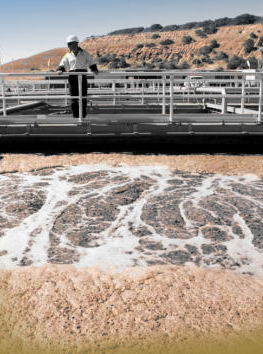SA's wasted wastewater questioned
 South Australia’s Liberal Opposition says wastewater is being dumped at sea to save money.
South Australia’s Liberal Opposition says wastewater is being dumped at sea to save money.
The Opposition has leapt on the recent revelation that the Glenelg wastewater treatment plant is pumping most of its water out to sea.
Just a small percentage of the wastewater is being making its way to be reused at parklands and other facilities.
Opposition water spokesperson Tim Whetstone says local governments could be convinced to use more recycled water, if it was cheaper.
“What we have to put into perspective is the cost of the water, whether it's wastewater, whether it's drinking water, the cost of water in South Australia is far too high and the viability of that wastewater is not economically driven at the moment,” he told reporters.
“In a time where we are facing drought and water shortages, it is completely ludicrous to be sending water out to the gulf, which could be reused.
“Water from the Glenelg WWTP (waste water treatment plant) could easily be re-used for a number of purposes, including public toilets, watering public reserves and gardens, and potentially even industrial uses, but it must be provided at an affordable price.”
There are also concerns that the wastewater flowing out to the gulf could damage seagrass and the local ocean environment.
The State Government has issued a statement saying it was reusing as much water from its wastewater treatment plants as possible, and that it does want new recycled water opportunities.
The Government says said the Glenelg Wastewater Treatment Plant was able to deliver 3.8 billion litres of reused water each year.
“SA Water is currently negotiating a number of other major water reuse projects with councils and other authorities throughout the state,” the statement read.
“Among them is a connection between the Aldinga and Christies plants which will increase recycled water available to primary producers.
“The State Government has a comprehensive water policy that continues to provide South Australians families and businesses with water security and usage options.”








 Print
Print